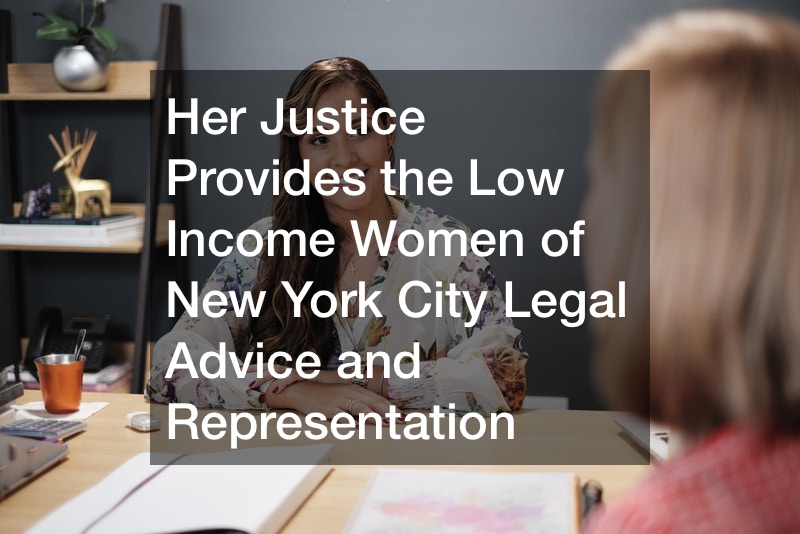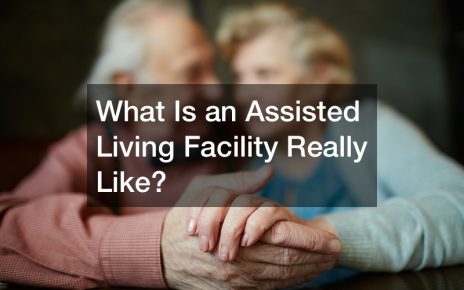
Founded in 1993, Her Justice is an organization that provides legal representation to low-income women in New York City. They provide marginalized women free advocacy in matters relating to family, matrimony, and immigration law. Often, women living in poverty face an exclusive, inefficient, and discriminatory justice system. These systemic barriers worsen an already bad situation so that the poorer become poorer and the weak weaker.
Her Justice has four main initiatives to combat the plight of low-income women living in the New York City area, namely:
- Child Support
- Marital Debt Project
- Trafficking Survivors Resiliency Project
- Immigration Survivor Employment Access Project
Her Justice recruits and mentors volunteer lawyers, mobilizing resources from New York City’s powerful law firms to transform the lives of women having to face domestic abuse and poverty. Their clients are low-income women, many of whom are foreign-born with children to care and provide for. Here are Her Justice’s initiatives:

Child-Related Services
For many women raising children, child support orders are a critical lifeline towards attaining financial stability. These orders are determined by family courts in the civil justice system. And so, in March 2021, Her Justice published their first policy report titled, “Towards Justice for Parents in Child Support Courts.” The report was conducted over two years when 89 volunteers observed 797 child support cases in New York. Here’s what they found:
Regarding the people who filed cases:
- 85% of parents petitioning the court appeared without a lawyer. 80% of the parents responding to petitions also had no attorney at law present with them.
- 74% of the petitioners were mothers. 71% of respondents were fathers.
- An estimated 12% of petitioners and 12% of respondents used interpreters.
Regarding the outcomes, the report discovered:
- 55% of the 797 observed cases were adjourned. 28% of those were adjourned due to improper or failure to produce the papers providing initial notice of a case. 25% were adjourned for failure to produce the required financial documentation.
- The court watchers concluded that 52% of the cases observed would have benefited from legal representation.
- 14.3% of cases observed were dismissed. However, for petitioners with an attorney, only 3% were dismissed.
The adjourned cases were a blow to petitioners desperate for results. They wasted a day with no progress on their cases. During the pandemic, the problem was exacerbated by the fact that the courts had to close, meaning parents had to wait months or more for the much-needed child support.
With 28 years of experience helping women overcome adversity, Her Justice has unique insight into these matters. Their clients experience a 70 percent average income increase after the cases are concluded. Her Justice is helping many women living in poverty with regard to:
a) Child Support
The law requires that both parents support their children until they are 21 years old. As such, Her Justice can help you petition the court to order a non-custodial father to pay for child support.
A child support order can also help:
- Establish your child’s biological father
- Order the Support Collection Unit (SCU) to automatically deduct child support payments from the father’s paycheck
- Suspend the father’s driver’s and/or business/professional license
- Alter an existing child support order
- Jail the father for up to six months for failing to pay the required child support. A bail bonds amount will be set
- Order the father to pay for health insurance and/or medical expenses in case your child has special needs
b) Order of Protection
Abuse victims often have no mediation service to turn to. If you fear for your safety, Her Justice can help you petition the court to order your abuser to cease any abusive, violent, harassing, or threatening behavior. For example, an order of protection can:
- Order your abuser to stay away from you in any place you frequent, e.g., your home, job, and the children’s school.
- Order your abuser to leave your home even if your name is not on the lease or title
- Give you temporary custody of your children
c) Legal Custody
This allows you the right to live with your children and make your own decisions regarding their upbringing.
d) Visitation
This allows you the right to manage the father’s visitation and even restrict it based on his behavior.
e) Spousal Maintenance or Support
The court can order your spouse to provide you with financial assistance regardless of whether you are still married or divorced. This is not always granted and will depend on a couple of factors including:
- Length of your marriage
- You and your ex-spouse’s ability to earn an income
- You and your ex-spouse’s health
Her Justice family law attorneys cannot offer assistance in the following instances:
- Child neglect or abuse
- Adoption or foster care
- Criminal cases

Marital Debt Project
This project was started in 2018 to provide women living in poverty with legal services in times of financial difficulty due to divorce, domestic abuse, and consumer debt. Her Justice reports that more than 33% of domestic violence survivors seeking legal representation in New York City have a consumer debt legal issue. The consumer debt issue is pervasive amongst domestic abuse victims.
According to the National Coalition Against Domestic Violence (NCADV), 99% of domestic violence victims also suffered economic abuse when they were with their abusive partners. Abuse victims often cite finances as one of the biggest obstacles to leaving an abusive relationship. They are often saddled with debts emanating from these relationships. They may have been forced to accumulate debts they did not want or did not know about because their partners stole their identities to commit financial identity fraud. Sometimes the victim is restricted from working or accessing existing funds to force her to relinquish her financial independence.
Such and other forms of financial abuse limit the victim’s freedom of choice. It leaves them with little or no access to money, unable to purchase essentials like food, or an accumulation of crippling debt built up by their partner. The situation can be so dire that even upon leaving the abuser, they may be reeled back into living with their abusers. Their debts contribute to poor credit scores, which in turn cause landlords to deny abuse victims housing opportunities.

How Her Justice’s Marital Projects Helps Low-Income Women
Under the Marital Debt Project, Her Justice can provide you with legal representation if you meet all the following criteria:
- You identify as a woman
- Have an income equal to or less than 200% of the federal poverty line
- You are filing for divorce, or have been served with divorce papers by your spouse.
- You have accumulated consumer debt during your marriage. These include student loans, credit card debt, car loans, payday loans, medical bills, rental arrears, utility bills, etc.
To help combat financial abuse and help abuse victims get back on their feet, Her Justice conducts credit reports for their clients so suspicious debts are identified. This is helpful for women considering divorce and suspecting their spouses of financial abuse. The credit report check also helps the advocates get an accurate picture of the client’s financial position, forming a good basis for both parties to discuss the client’s financial future after divorce.
Aside from representation by divorce lawyers to help with divorce proceedings, the Marital Debt Project may provide you with:
- Credit report evaluations, a review of your debt, and a thorough approach to identity fraud
- Defense against creditors in civil court lawsuits
- Negotiations and settlement with your creditors.
Between 2018 and 2020, the Marital Debt project has provided direct representation on 20 legal cases, and for 259 people, they have provided advice, counsel, and brief services. The project has also conducted presentations and workshops where they educated 89 community members on financial abuse and consumer debt issues. Lastly, they ran credit reports for 52 clients during that time.
Trafficking Survivors Resiliency Project
According to the Interagency Task Force on Human Trafficking, New York State has had 1,841 confirmed cases of human trafficking between 2007 and 2020. 1,647 of those were female. The type of trafficking was mostly sex trafficking (1,360 cases), followed by labor trafficking (378 cases). Women and girls who are victims of sex trafficking experience racially motivated prostitution arrests that saddle them with criminal records. These then hamper their attempts at seeking other forms of gainful employment. They suffer ICE deportations, and those still being abused and trafficked find it hard to leave their abusers since they lack social and legal services. Her Justice works with various legal experts, including a family lawyer, disability attorney, immigration lawyer, and others, to help trafficking survivors rebuild their lives.

How Her Justice Helps Trafficking Survivors
The Trafficking Survivors Resiliency Project aims to protect trafficking survivors (with a specific focus on Mandarin speakers) by:
- Providing civil legal services to stabilize their legal status, thus providing protection and financial stability.
- Fighting to remove their client’s criminal records/convictions arising from the abuse they endured.
- Developing a T Visa pro bono placement program that will help connect pro bono partners to trafficking survivors.
- Imparting educating regarding their rights regarding trafficking, domestic violence, and immigration legal rights.
- Through advocating at the local and federal levels, Her Justice will fight to prevent the conditions that allow trafficking and remove obstacles that stop trafficking survivors from getting the justice they deserve.
Immigration Survivor Employment Access Project
In general, women face high risks of domestic violence. However, immigrant women have a tougher time escaping abusive circumstances. Their immigrant status compounds the problem by limiting the ways they can escape from such abuse. Due to immigration laws, poverty, language barriers, and social isolation, the women often feel trapped and helpless. They also lack knowledge of their immigration rights and would likely not know how to choose a good attorney.
According to a 2004 New York City Department of Health and Mental Hygiene report, 51% of intimate partner homicide victims were foreign-born. 45% were native. The abusers often use their immigration status as a tool to maintain control over their victims and trap them in abusive relationships.
Her Justice provides free legal assistance to such women who have suffered domestic violence or other forms of gender-based violence. The organization helps them find their footing concerning their legal status. However, it is first critical that these women get permits to work in the country as it frees them to better their lives. Among other benefits, they are free to:
- Leave abusive relationships without needing to return their abusers
- Even if they lose their jobs, they can access unemployment insurance and other benefits to keep them stable.
- Receive social security cards and enjoy more stability and participation in society. They are also more likely to try and access legal services such as a child custody attorney.
Her Justice helps immigrants by:
- Providing direct legal representation regarding employment authorization and social service support.
- Advocating for change in the justice system with regards to work authorization
- Partnering with other organizations serving immigrant communities in order to build their outreach capacity
In 2019, Her Justice helped secure legal status for 199 women and 326 children. 75 women got their work authorizations, while five women and three children were able to obtain citizenship. A further 1,189 low-income women received immigration information and representation. Clients who receive legal status continue their involvement with Her Justice attorneys to gain status for their families.
Her Justice maintains a pro bono approach mentoring and training over 1,500 lawyers annually. These lawyers provide their services in 80% of Her Justice’s cases. There aren’t enough lawyers to meet the needs of all the women in need, but Her Justice is making strides in filling that gap. Call us today if you are a low-income woman living in New York City needing any of the services mentioned.



